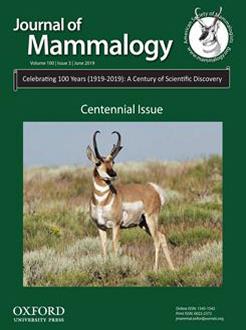Disease ecology is a rapidly growing subdiscipline, and mammals and their parasites feature prominently in both historical and more recent research efforts. Nevertheless, the diversity of topics explored, and those not well explored, has not been systematically assessed. We conducted a systematic review of the published scientific literature in disease ecology of mammals and subjected the collection of original and review articles identified to a topic modeling approach, which is based on the words used in the published texts and their contexts (i.e., the frequency and strength of their semantic relationships with one another). In addition to concept maps identifying the most prominent research themes, we identified eight (not mutually exclusive) subcategories of studies, including experimental, theoretical, comparative, behavioral, immunological–microbiological, biogeographic–macroecological, vector-focused (e.g., mosquitoes), and disturbance-focused. The most prominent themes arising in review papers included the ecology of zoonotic diseases transmitted from non-human mammals, comparisons of pathogen prevalence between mammalian species, and pathogen discovery–disease surveillance studies, particularly of marine mammals and bats. For the original articles, the most prominent themes included ecology of rodent-transmitted viral and bacterial diseases and the population biology of zoonotic hosts. Most studies used comparative or descriptive approaches to investigate mammal–pathogen–disease relationships at a local scale, focusing on vector-borne diseases. Experimental, modeling, immunological, and behavioral approaches were strikingly underrepresented. Topics of strong conceptual importance, but that are underrepresented in the current literature, include: 1) the effects of the population density of mammalian hosts, and manipulations of density, on pathogen transmission; 2) macroecological studies that quantify effects of mammalian host species on parasite abundance and prevalence; and 3) effects of climate change on physiological and behavioral processes relevant to mammal–parasite interactions.
How to translate text using browser tools
11 July 2019
Topic modeling of major research themes in disease ecology of mammals
Barbara A. Han,
Richard S. Ostfeld
ACCESS THE FULL ARTICLE

Journal of Mammalogy
Vol. 100 • No. 3
July 2019
Vol. 100 • No. 3
July 2019
behavioral ecology
content mining
helminth parasites
machine learning
marine disease
vector-borne
zoonosis





